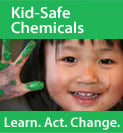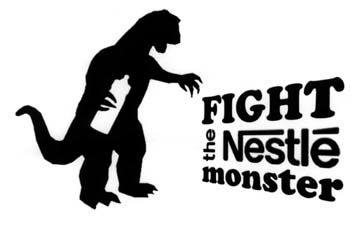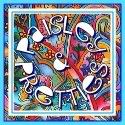Play With Me (Part 3)
>> Sunday, April 19, 2009
Sorry that I'm late getting this up. Yesterday ended up really busy, then we had company in the evening. By the time everyone was settled, I was passed out with the baby. That's the way it goes sometimes. I decided to write first thing this morning, that way I can't get too busy or too tired.
Here is part three in my series of play from birth to two years for the Carnival of Play being hosted by Annie from PhD in Parenting.
12 to 15 Months:
Your baby is developing a sense of humor and he loves having an audience to preform for, not for the performance but for the applause. Give him lots of applause. Baby knows what he likes and doesn't like and is able to express that to you. He also now understands when you scold him. He may scream when he is frustrated, which often will be when you are doing something for him that he wants to do himself. Yes, at this stage baby is starting to show some independence. Baby still loves to be with you and copy everything you do. This is how he learns. Give him small versions of your tools. A mini-broom, a play hammer, a cloth so he can help dust.
He loves to chatter to himself and listen to the words, so keep talking to baby about everything.
- Movement - Baby likes to roll around and try to do somersaults. Show baby how to do this. She is learning to stoop down and pick up toys. She is standing, sitting and climbing. Continue to play lots of bouncing games with her.
Toe Touches - Baby will copy you as you play this game. You can sing Head and Shoulders, Knees and Toes. I like to sing it slowly then gradually go faster. He thinks it's funny when we try to keep up with how fast we are singing. Baby loves when mom or dad acts silly too. :)
- Water Play - Provide lots of different tub toys. They don't need to be made specifically for the tub. Funnels, measuring cups, spoons and straws all make great tub toys.
Parts of the Body - Now is a great time to start teaching baby the pars of the body. Let baby help you wash up and say "wash your ears" and "now let's wash your toes". You'll be surprised how fast baby learns this. Even if she can't say the words she will start to point them out to you.
You can continue this game when dressing too. Say things like "let's put your socks on your feet".
Straws - Show baby how to blow bubbles in water with a straw. She may be ready to learn to drink from a straw as well. Learning to use a straw is important in speech development so give your baby plenty of opportunities to practice this skill.
- Music and Instruments - Baby loves to bounce around to rhymes and music. So keep dancing, singing and him play with is instruments.
- Outdoor Play - Continue to take baby outdoors at least once a day weather permitting. As summer is approaching here, I usually take my kids out in the morning to play for awhile. Then back inside for lunch, nap and craft time. Then we go back out late afternoon and often stay out until bath time. It's important to limit the outdoor play when the sun is at its hottest, especially when it is very hot out. Always make sure to use a sunscreen too.
Swimming - Take your baby swimming either at the beach or a pool. A small inflatable wadding pool for your yard will be a great addition. Provide some spray bottles, squirt bottles (washed, rinsed out window cleaner bottle and dish soap bottles work great), floating balls, plastic containers (punch holes in the bottom to make a sprinkler). Never leave baby unattended in or around the wading pool.
15 to 24 Months:
Your baby is now a toddler and his energy is boundless! He doesn't want interference from you on some activities but he still wants you there for encouragement and support.
- Movement - You toddler loves to move! Provide lots of opportunities to run and play. Help improve balance and coordination by holding her hand as she walks along low curbs. Here are some games that will help channel your toddlers endless energy.
- Ring Around the Rosie
- London Bridge
- Hokey Pokey
- Looby Loo
- Let's Clap Our Hands Together
- Water Play - Water play continues to be a lot of fun for your growing toddler.
Stomp the Bubble - (NOT a bathtub game) Get him to stomp on the bubbles as they land rather than watching them break naturally. This is great for developing coordination.
Clap the Bubble - Play some music and have him clap the bubbles to the beat.
Warm/Hot/Cold - Fill one container with cold water, another with warm water, and another with (comfortably) hot water. Talk with him about the difference in temperature and the dangers of hot water. Blindfold him and as him to guess which one is which.
Washing Dishes - Pull a chair up to the counter and let him help you wash unbreakable dishes. Have towels and a mop handy, this is messy but FUN. As he gets older he will ask to let him "do dishes". Enjoy this while it lasts - by the time he's a teenager this has lost all appeal.
- Art - Art is becoming an important activity for your toddler. He loves creating and making messes.
Stringing Beads - This is great for eye-hand coordination. You can use different sized macaroni and you can dye the macaroni too. You and your toddler can make necklaces for each other. He will be so proud to see you wearing his creation.
Goop - This can come in the form of play dough or you can just use some raw bread dough when you are making bread. Show her how to roll the dough out, make snakes, push, poke and squeeze the dough.
I hope you have enjoyed reading this series. I believe play is an extremely important part of a babies brain development. Playing with mom and dad provides much more stimulation for brain development than toys or TV ever could. Play, talk and sing to your baby as much as you can. Not only will he be smarter for it, but you'll have a great bond with your child and memories to last forever. Childhood is so short, enjoy every minute of it.
For more information on experienced based brain development in the early years, you can read some of Dr. Fraser Mustard's report on The Early Years here, here and watch him speak here. Dr. Fraser Mustard is one of the world's leading experts on early childhood development.






















Post a Comment